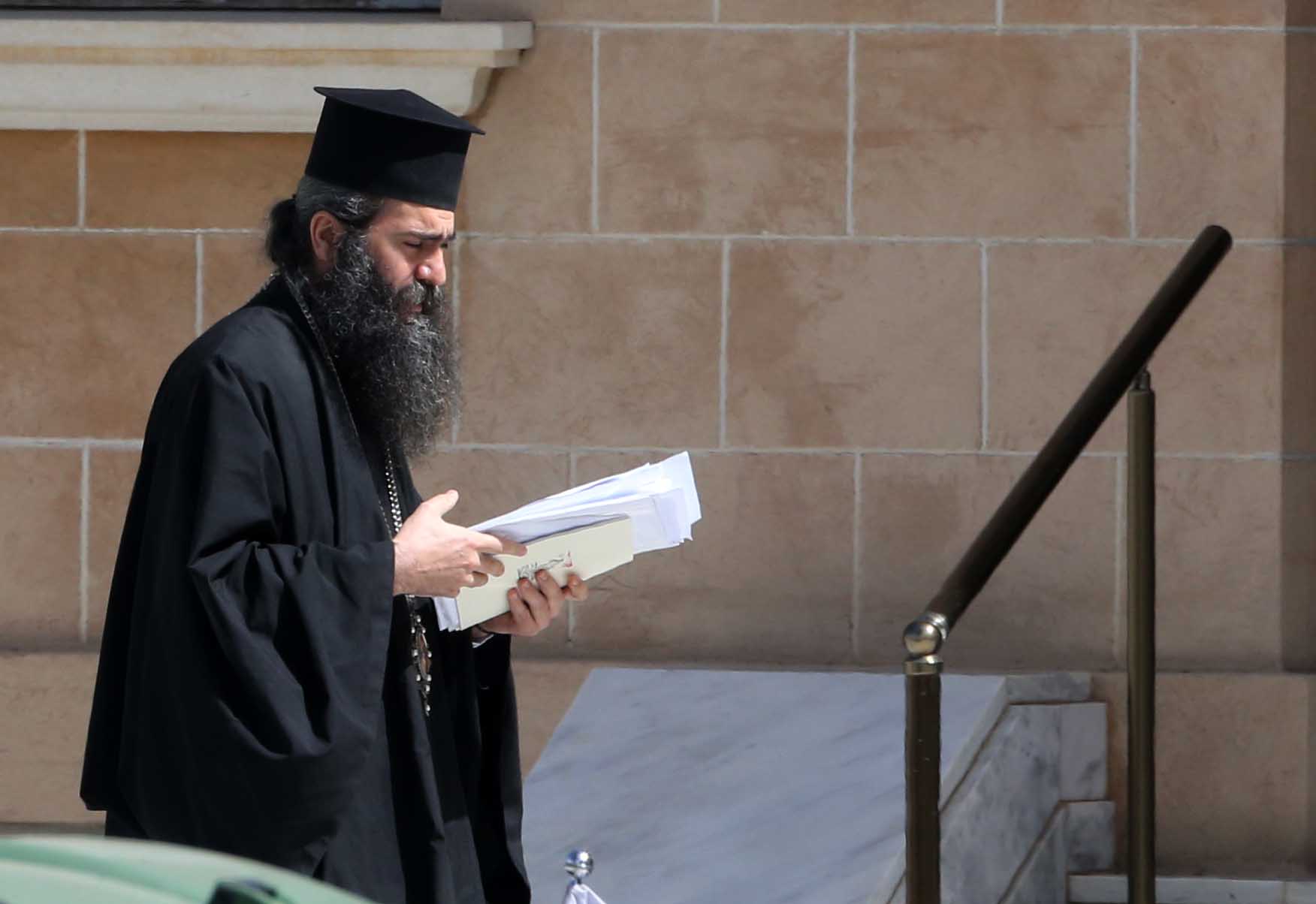The deposed Paphos bishop Tychikos on Monday submitted a confession of faith to the Holy Synod, ahead of an expected appeal against the decision to relieve him of his duties.
The confession of faith had been requested of him by the Holy Synod when they removed him from his post last month.
According to the Cyprus News Agency, he had written in the confession of faith that “for reasons of avoiding scandal regarding possible disobedience of the Holy Synod, and to refute any slander against me regarding alleged desecration … I prepared a confession of faith before the final decision to file an appeal”.
He also wrote that he considered the church’s request that he submit a confession of faith to be “unreasonable”, given that he believes he has not veered from that which he declared on the day of his ordination and that since then, “I did not adhere to any error or heresy”.
In addition, he said the accusations levelled against him are “not valid, but are being demolished like a tower of cards”.
The Holy Synod had on May 22 voted by a ten to six margin to ratify Tychikos’ removal from his official status after he was charged with various breaches of church protocol, including the showcasing an icon of a saint not canonised by the Church.
Church secretary Georgios Christodoulou in a statement confirming the synod’s decision, said that “the Holy Synod decided that the aforementioned hierarchy shall remain a bishop of the Church of Cyprus and a member of the Holy Synod,” understood to mean he may retain the title, but that he has been relieved of his administrative duties.
Archbishop Georgios took over the temporary running of the Paphos diocese, with a new bishop set to be elected in September
The archbishop had previously clashed with Tychikos, notably over the latter’s refusal to allow the relic of Apostle Paul’s skull to be brought from the Vatican City to Cyprus on the principle that the late Pope Francis was “a heretic”.
Tychikos had also faced accusations of racism in the past, having once told a congregation to “avoid food prepared by contaminated people” and having refused to conduct marriages between members of the church who were not of Greek origin.
The day after his dismissal, Paphos mayor Phedonas Phedonos had said his municipality had had to suffer “trying and unbecoming behaviours” on Tychikos’ part for years.
Phedonos said Tychikos had taken the municipality to court “without the courtesy of informing” them, and that he had obstructed all communication between the municipality and the bishopric by locking offices and refusing to answer telephone calls.
The reason given for the stonewalling was a “spiritual retreat”, Phedonos added.
Most recently, the mayor found himself at loggerheads with Tychikos over the planning of an event to mark May 19, the day observed by Pontic Greeks as the “day of commemoration of the Pontic Greek genocide”, with the latter again making his own arrangements without checking in with the municipality.
“I called him five or six times and he did not answer me. The last time, he sent me a text saying, ‘bless you’,” Phedonas said.






Click here to change your cookie preferences